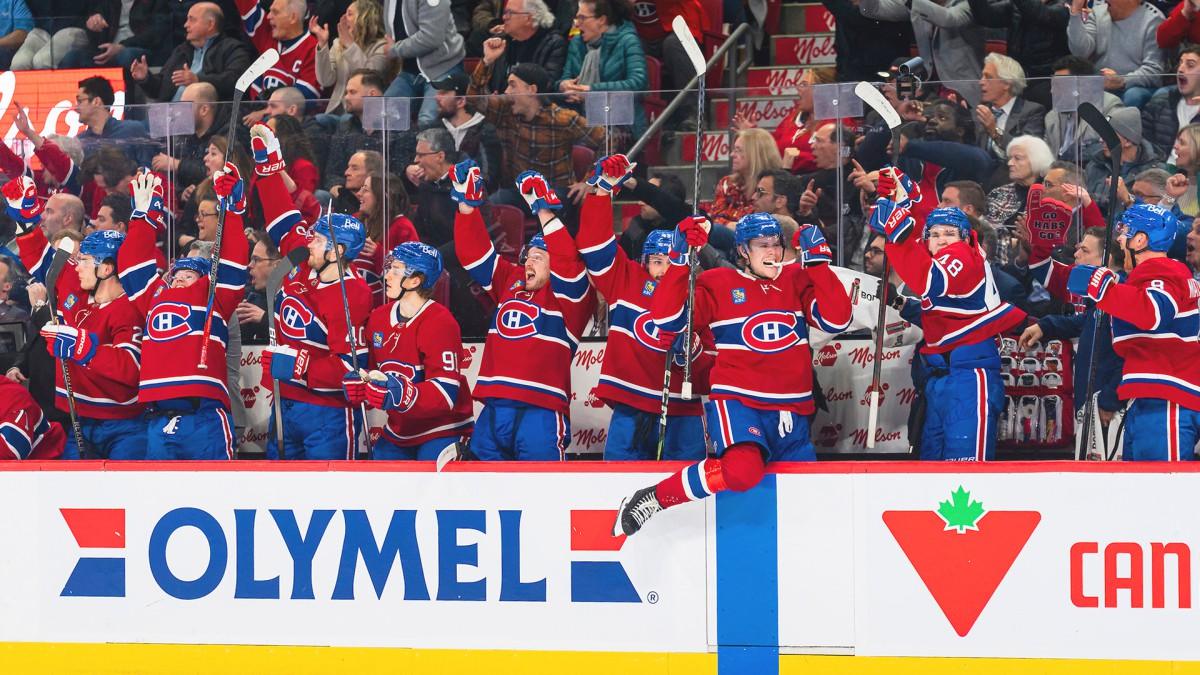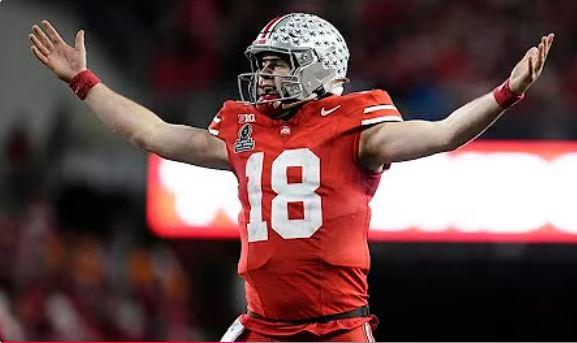In spite of their relatively successful win-loss record over the past few weeks, a closer look at the Montreal Canadiens reveals an unsettling truth: the team is simply not playing a complete 60-minute game — and their offensive creativity has gone quiet at the worst possible time.
Including Friday night’s 1-0 shutout loss to the Toronto Maple Leafs, the Canadiens have now gone six straight games without scoring a single goal in the first period. Even more troubling? They’ve gone 14 consecutive games without leading after 20 minutes. For a team that preaches pace, pressure, and creativity under Martin St-Louis, those are damning numbers.
Here’s a look at the Canadiens’ most recent nine-game stretch:
|
DATE |
VS |
GF |
GA |
SH |
SA |
SH% |
NOTES |
|
Mar. 28 |
CAR |
1 |
4 |
15 |
24 |
4.2 |
4 shots in the 1st, 3 in the 2nd |
|
Mar. 30 |
FLA |
4 |
2 |
23 |
26 |
17.4 |
4 shots in the 2nd |
|
Apr. 1 |
FLA |
3 |
2 |
21 |
27 |
14.3 |
4 shots in the 3rd |
|
Apr. 3 |
BOS |
4 |
1 |
32 |
19 |
12.5 |
– |
|
Apr. 5 |
PHI |
3 |
2 |
26 |
24 |
11.5 |
4 shots in the 1st |
|
Apr. 6 |
NSH |
2 |
1 |
17 |
37 |
11.8 |
4 shots in the 1st, 5 in the 3rd |
|
Apr. 8 |
DET |
4 (2 EN) |
1 |
21 |
36 |
19.0 |
4 shots in the 1st |
|
Apr. 11 |
OTT |
2 |
5 |
22 |
34 |
9.1 |
5 shots in the 1st, 4 in the 3rd |
|
Apr. 12 |
TOR |
0 |
1 |
15 |
35 |
0.0 |
2 shots in the 1st, 5 in the 2nd |
|
AVG |
23 |
19 |
21.3 |
29.1 |
12.0 |
Even with a respectable .722 points percentage (13 of a possible 18), this stretch has felt more like escape artistry than dominance. A few clutch goals, a good penalty kill, solid defensive structure at times, and — most notably — outstanding goaltending have allowed Montreal to weather storms. But that kind of rope-a-dope isn’t sustainable, especially come playoff time.
Goaltending Masking Offensive Gaps
Samuel Montembeault and Jakub Dobeš have had to bail out their team too often. Without their heroics, it’s not hard to imagine Montreal dropping several of those close games. The 1-0 loss to Toronto was a perfect example: two shots in the first period, five in the second — and almost no sustained pressure.
In his last two games with the #Habs, Jakub Dobeš is the sole reason why the #Habs got 3 out of 4 possible points. He stopped 70 of the 72 shots directed at him (.972 Sv%) and maintained a 1.00 GAA. If "the book is out on him", as some suggested, they better write more pages… #GoHabsGo
— JD Lagrange (@jdlagrange.bsky.social) 2025-04-13T13:37:45.384Z
For a team that ranks 27th in goals per game and dead last (32nd) in shots per game during that nine-game stretch, the warning signs are glaring. The Canadiens often don’t get going until the second or third period, and even then, they’re struggling to consistently generate quality chances. When that happens, the burden falls squarely on the goalie’s shoulders, or highlights some defensive mistakes.
Where Did the Creativity Go?
Earlier this season, Martin St-Louis’ system was praised for its free-flowing, instinctive offensive style. It looked like fun. It looked dangerous. But lately, that creativity has vanished for long stretches — especially early in games.
Montreal is getting pinned in their own zone early and too often, and their inability to exit cleanly or create neutral zone speed is stalling any kind of rhythm. The numbers back it up: five shots or fewer in a period 12 times in the last nine games. It’s a trend that suggests more than just an off night — it’s a system-wide sputter.
Playoffs on the Horizon
With a first-round series against the Washington Capitals looming, time is running out for the Habs to correct course. The margin for error in the postseason is razor-thin. Teams that sleepwalk through the first period don’t last long in the spring.
Montreal doesn’t need to overhaul its identity, but it does need to be ready to play at first puck drop and generate offense earlier in games. Whether that’s a strategic tweak or a mindset shift, something has to change. Otherwise, they risk wasting solid goaltending and defensive efforts with an anemic attack that shows up too late — or sometimes not at all.
Perhaps Ivan Demidov can help provide a spark, but that’s putting a lot on a 19 year-old who will be taking his first strides not only on a new team, but on a smaller ice surface against the world’s best competition.
Regardless, the clock is ticking. And if the Canadiens want to make any kind of noise in the playoffs, it has to start with better first periods and more consistent offensive pressure — not just playing from behind and hoping for magic.





